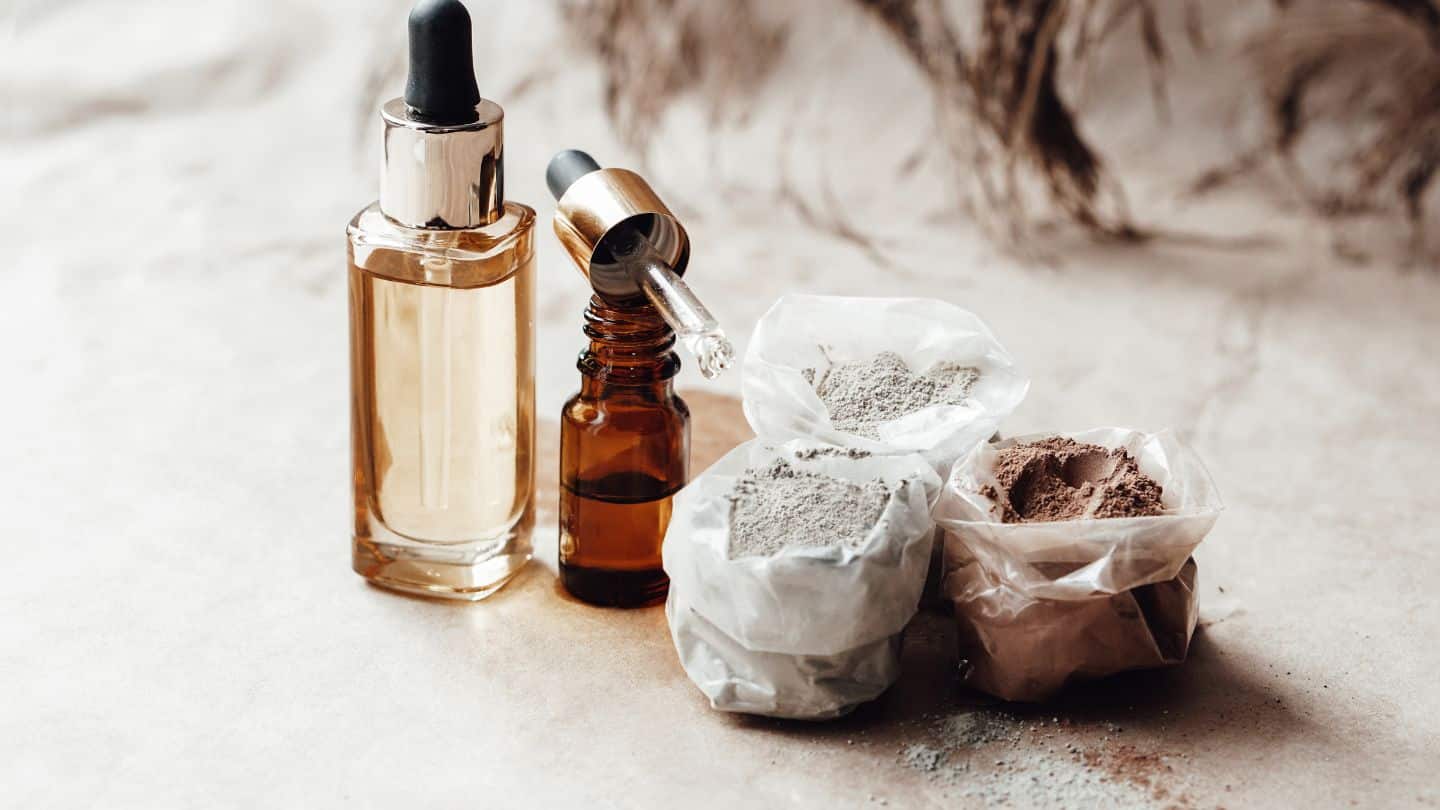The Modernization of Cosmetics Regulation Act of 2022 (MoCRA) is transforming cosmetic regulatory practices. This pivotal legislation influences everything from cosmetic toxicological risk assessments to broader compliance in the cosmetic supply chain.
Signed into law in December 2022, the MoCRA act increases the U.S. Food and Drug Administration’s (FDA’s) regulatory authority over cosmetics and establishes regulations that will ripple throughout the cosmetic supply chain.
MoCRA’s new requirements will have a global impact on the cosmetics industry, as regulations apply to all cosmetics marketed in the U.S., including those being imported from other countries.
We asked Jaclyn Bellomo, Registrar Corp’s Director of Cosmetic Services and Software, to walk us through MoCRA’s implications and challenges and share her thoughts on why it’s critical for cosmetic companies to prepare for requirements now.
What is the MoCRA Act and why was it created?
MoCRA introduces comprehensive changes, including stringent cosmetic toxicological risk assessments and enhanced regulatory frameworks, aligning U.S. practices with global standards.
“MoCRA is the largest reform in FDA cosmetic regulations in history, covering everything from facility registrations and product listings to safety substantiation, Good Manufacturing Practices (GMPs), records access, and adverse event reporting,” Bellomo said.
“It encompasses many of the cosmetics regulations the U.S. has been lacking that other countries have adopted and intends to align U.S. regulations with global regulatory compliances and restrictions. It also aims to bring safety and transparency to the beauty and personal care industry.”
Does the MoCRA Act prohibit ingredients?
“Currently, FDA is only assessing the ingredients that have the most media and state attention because of already existing claims and issues present in products on the shelves.”
For instance, MoCRA includes regulations surrounding talc in response to litigations that claim usage of talc-containing products was related to asbestos exposure and health issues. But the legislation only indicates specific testing must be done in compliance with forthcoming talc regulations.
Similarly, MoCRA requires a toxicological risk assessment for cosmetics that include PFAS chemicals.
“But at the moment, it’s hard to say whether ingredient-specific regulations will lead to prohibition of ingredients,” Bellomo clarified.
Bellomo noted that the challenge is posed by individual state regulations, which are being initiated more frequently. “Some states took regulations into their own hands by prohibiting ingredients and restricting use of ingredients, even down to trace levels residuals.
Governments in states such as California, Washington, Colorado, Vermont, and New York have set precedents by restricting ingredients to trace levels, highlighting the need for compliance in the cosmetic supply chain across various jurisdictions.
It can become very burdensome on the industry to have so many different regulations to follow per state, so FDA’s decision to have safety substantiation under MoCRA could help companies get information on ingredients which they did not have in the past, alleviating some of the work that will be needed at state level.”
What are MoCRA’s main objectives?
“Some of MoCRA’s main objectives are to know where cosmetics are being made, what cosmetics are being made, and who’s responsible for those cosmetics,” Bellomo explained. “That is at the forefront of what FDA is trying to accomplish. When that information is available, it’s easier to enforce regulations because there’s transparency about where the products are coming from. Enforcement cannot happen without the clarity of who, what, and where.”
What companies will be affected by the MoCRA Act?
“Any company that touches a cosmetic product distributed or marketed in the U.S. needs to be aware of the MoCRA Act,” Bellomo said. “There are different implications for different entities. Facilities are going to be responsible for facility registrations, GMPs, record access and inspections. Responsible persons will be responsible for product listing, adverse events, labeling, fragrance allergen disclosures, and fragrance allergen records.”
Bellomo explained that, while the legislation focuses heavily on facilities and responsible persons, the cosmetic industry is much broader than these two groups. “Raw material suppliers will be significantly impacted because of fragrance allergens disclosures and safety substantiation regulations. MoCRA’s safety requirements don’t stop at the formula level. Safety extends to the raw material level, so companies will need to acquire certain data about their raw materials. If they don’t have that data, they’ll need to get it.”
Bellomo added that, if a product has been misbranded or adulterated, brokers, importers, and retailers will be affected by mandatory recalls.
What are some potential challenges for companies that need to comply with MoCRA?
“Smaller, less technical companies that have limited staff for regulatory purposes and have not had any experience with FDA compliance will face a big challenge,” Bellomo said. “They may struggle to either add staff or to understand the regulations, and most likely will need to contract with third parties that can bridge that knowledge gap.”
One regulation that may prove particularly challenging is the adequate safety substantiation requirement, which requires companies to provide evidence or information sufficient to support a reasonable certainty that a cosmetic product is safe.
“The definition is slightly vague at this time,” Bellomo explained. “Understanding which tests and studies are sufficient and how these will be approved could be a gray area, so people might rush out to get as many tests as possible, which could be burdensome.”
What do you think that companies should be doing right now to prepare?
“Know what your products are and where they’re being manufactured. If you own a manufacturing facility it’s going to be simpler to assess which products are active on the shelves, and you know where they’re being made. But if you’re a responsible person that contracts your products elsewhere, you’ll need to contact all your contract manufacturers and start to understand how they’re going to handle their registration.”
Bellomo emphasized the need for companies to act quickly to develop a strategy for how they will tackle MoCRA’s requirements. “Gather information you might need for your product listings and come up with a game plan on how your company will internally take on MoCRA,” she said.
She also suggests non-U.S. companies obtain a U.S. Agent as soon as possible. FDA requires facilities outside the U.S. to designate a domestic U.S. Agent for FDA communication. Companies intending to ship cosmetics to the U.S. for distribution must include their U.S. Agent’s information in their FDA registration.
Bellomo stressed the importance of how understanding and implementing these regulations are crucial for any entity involved in the cosmetic supply chain and knowing what still needs to be done to comply with the MoCRA Act. “Do a gap assessment to see what you’re missing. You might find that you don’t know what product categories your cosmetics fall under, which you need to know to submit product listings. Or you may not know which facility you’re processing certain products at.”
With MoCRA’s registration and product listing requirements set to take effect by the end of 2023, it is critical that companies avoid waiting any longer to prepare.
“We’re already halfway into the first year of MoCRA’s enactment. If there isn’t enough staff to implement registration and listing requirements, you’ll need to consider hiring outside sources to help, “Bellomo explained.
“There will likely be a flood of companies clamoring to get third-party assistance with registration and listings toward the end of the year, and there may not be spots open with third-party companies by then. If there are more customers than these companies have the capacity to handle, they may need to start turning people away. It’s critical to hire assistance now.”
Need a U.S. Agent for your cosmetics company? Designate Registrar Corp as your U.S. Agent today.
About Our Expert:
Jaclyn Bellomo is a cosmetic industry professional with over a decade of experience in technical formulation, regulatory compliance, product development, and brand management. After obtaining her bachelor’s degree in chemistry from Manhattan College, Jaclyn continued her education earning a MS in Cosmetic Science from Fairleigh Dickinson University, a MS in Regulatory Affairs from Northeastern University, and finally her MBA from Northeastern University.
Jaclyn has spent the majority of her career in the private sector working with multinational brands, specializing in formulations for the beauty and personal care industry from concept to counter. Jaclyn is active on several committees across the industry that focus on education and compliance to ensure there is continued support for the cosmetic industry.
As Director of Cosmetic Services and Software, Jaclyn adds a deep understanding of the cosmetic regulatory environment and uses her expertise to support cosmetic companies on the newly enacted MoCRA regulations that will be required for cosmetic products distributed and marketed in the United States. In addition, Jaclyn works closely with our Cosmetri Product Manager and cGMP software to help streamline R&D processes, update compliance, and support customers in improving their current working operations.
Get Assistance with FDA Compliance for Cosmetics
Registrar Corp’s Regulatory Specialists help companies comply with FDA regulations for cosmetics, including FDA Registration, Product Listings, U.S. Agent requirements, and Adverse Events Reporting.
For more assistance, call: +1-757-224-0177, email: info@registrarcorp.com, or chat with a Regulatory Advisor 24-hours a day: www.registrarcorp.com/livechat.
Other Frequently Asked Questions About the MoCRA Act
Who is exempt from MoCRA?
Under the MoCRA Act, there are few exemptions. All cosmetic facilities, distributors, and formulators that market products in the U.S. must comply with the new regulations. However, small-scale manufacturers and handcrafters might have specific exemptions or reduced requirements, particularly in regards to facility registration and Good Manufacturing Practices (GMPs). It is important to consult the full legal text or seek legal advice to understand any specific exemptions that may apply to your situation.
What qualifies as a small business under MoCRA?
The MoCRA Act defines a small business based on its annual revenues and the number of employees, although the exact thresholds can vary depending on the specific provisions being considered. Generally, businesses with fewer than 500 employees and less than $10 million in annual sales might qualify as small businesses under certain MoCRA stipulations. Small businesses may be subject to different compliance timelines or scaled requirements, especially in the areas of facility registration and GMP compliance.
What is a MoCRA adverse event?
A MoCRA adverse event refers to any undesirable experience associated with the use of a cosmetic product that is serious or unexpected. This includes any unexpected side effect, injury, toxicity, or sensitivity reaction that is specifically related to the use of the cosmetic product. Under MoCRA, responsible persons are required to report these adverse events to the FDA, which helps the agency monitor product safety and take appropriate regulatory actions if necessary. Adverse event reporting under MoCRA is aimed at improving the overall safety of cosmetic products marketed in the United States.
These FAQ entries are designed to fill in the gaps left by the original webpage, ensuring that readers have a comprehensive understanding of the MoCRA Act and its implications for the cosmetics industry.








